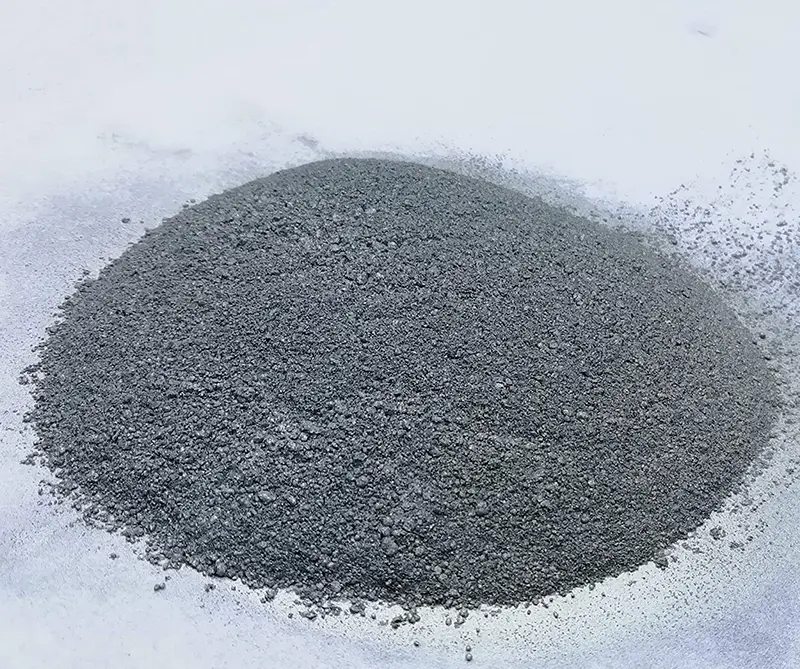Introduction
Aluminum powder is a versatile material that finds extensive applications across industries. However, there may be instances where using alternatives to aluminum powder becomes necessary. Whether due to availability, cost considerations, or specific project requirements, exploring substitutes can offer suitable alternatives. This article examines various materials that can serve as substitutes for aluminum powder and their potential applications.
Zinc Powder
Zinc powder, known for its similar particle size and reactivity, is a common substitute for aluminum powder in specific applications. It shares aluminum’s ability to generate heat and bright sparks when ignited. However, it is important to note that compared to aluminum, zinc powder produces a different burn color and may exhibit different burning characteristics. Zinc powder can be used as a substitute in certain pyrotechnic applications, such as fireworks and special effects.
Iron Powder
For applications requiring metallic properties and reactions, iron powder can serve as a substitute for aluminum powder. Iron powder can be highly reactive and exhibits similar combustion characteristics to aluminum powder. It is often used in metallurgical and chemical applications, including the production of iron-based paints, coatings, and pigments. Iron powder can also be utilized in pyrotechnics and fireworks displays.
Magnesium Powder
Magnesium powder is another potential substitute for aluminum powder due to its similar characteristics and reactivity. It is known for producing bright white sparks and intense heat when ignited. Magnesium powder finds application in fireworks, pyrotechnics, and other specialized areas such as military flares.
Other Alternatives
a) Graphite Powder: Graphite powder can be an alternative in certain applications requiring electrical conductivity or lubrication properties. It is often used in industrial settings, such as lubricants, conductive coatings, and electrode materials.
b) Non-Metallic Powders: Certain non-metallic powders, such as sulfur or potassium nitrate, can substitute aluminum powder in specific chemical reactions or pyrotechnic formulations. These alternatives offer options for customizing properties and achieving desired outcomes.
Considerations when Substituting
When considering substitutes for aluminum powder, several factors should be taken into account:
a) Application Requirements: Ensure that the substitute material is suitable for the intended application and possesses the desired properties, performance, and characteristics.
b) Safety Considerations: Different substitutes may have distinct safety profiles, combustion behaviors, or handling requirements. It is essential to thoroughly understand and follow relevant safety guidelines and regulations associated with the chosen substitute.
c) Compatibility: Substitutes may not always be directly interchangeable with aluminum powder. Compatibility with other materials, binder systems, or process conditions should be assessed to ensure desired performance.
Cost Considerations
Aluminum powder prices can vary based on factors such as market demand, production costs, and purity levels, often making it an affordable option for many applications. When considering substitutes, it is essential to evaluate the cost of alternative materials in relation to the required performance and specific project needs. It may be beneficial to compare prices, availability, and the suitability of alternative materials before making a decision.
Conclusion
While aluminum powder boasts diverse applications, there are instances when alternatives may be sought. Substitutes such as zinc powder, iron powder, magnesium powder, and graphite powder offer different characteristics and can be utilized in specific applications. Each alternative presents unique opportunities and considerations, including safety, compatibility, and cost. Thorough evaluation of substitute materials, adherence to safety guidelines, and understanding specific project requirements will help determine the most suitable substitute for aluminum powder.
As industries evolve and project goals shift, exploring alternatives allows for flexibility and adaptability. By identifying appropriate substitutes, individuals and businesses can continue to meet their desired outcomes while embracing a range of materials that offer performance and value for their respective applications.

Post time: 9 月-06-2023




